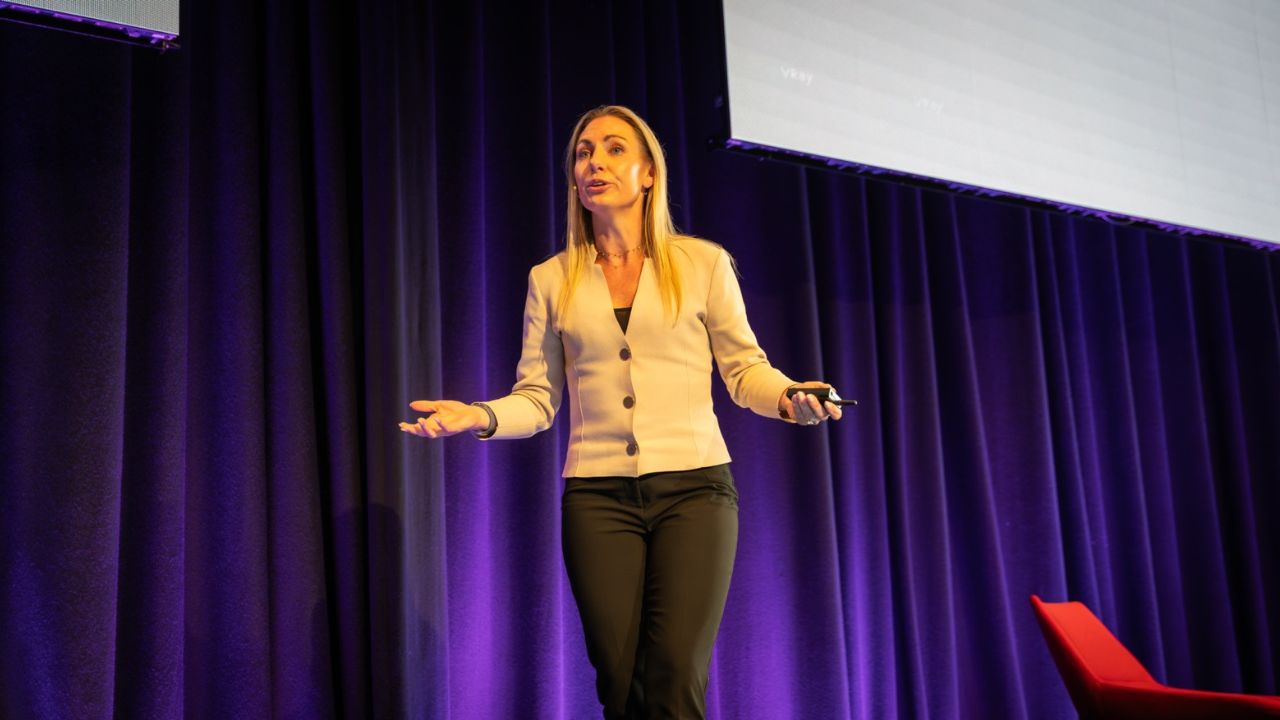At 23, Annabelle Chauncy had no funding, no roadmap, and no business plan, just a determination to educate poverty out of existence. Today, as Founding Director of School for Life, she leads a $6 million global organisation that has built schools, educated thousands, and transformed communities in Uganda.
Speaking at the PM/One conference, Annabelle’s message wasn’t about education alone, it was about the art of relentless evolution. Her journey offers surprising and powerful lessons for anyone in property management navigating change, leading teams, or simply trying to do more with less.
Lesson 1: Start where you are. Use what you have. Solve what’s in front of you.
Annabelle grew up on a sheep and cattle farm in regional NSW, where solving problems without a blueprint was second nature. When she first visited East Africa as a volunteer, she was overwhelmed by what she saw—schools with broken desks, no supplies, and students walking 10km on empty stomachs just for a chance to learn.
“I remember thinking: the problem is too big. How can one person make a difference?” she said. “But I also knew—if not me, then who?”
That’s a mindset property managers will recognise. In an industry where problems arrive daily—late rent, compliance, maintenance blowouts—it’s easy to feel like one person can’t shift the system. But as Annabelle shows, real impact often starts with simply deciding to act.
Lesson 2: Relationships are your greatest asset
In launching School for Life, Annabelle faced a crowded charity market and an uphill battle for funding. Her answer? Become the best relationship manager in the sector.
“We wanted our donors to feel inspired, not guilted. We didn’t want to just report on problems—we wanted to make people feel like they were part of the solution,” she said.
Sound familiar? In property management, your landlords, tenants and trades are your “donor base”—and how they feel about working with you determines your future. Like Annabelle, PMs can win by doubling down on relationship quality, transparency and value. It’s not about being everything to everyone—it’s about being indispensable to the right people.
She built her model around three principles: relationships, rigour and real-world impact. “Think about what your non-negotiables are,” she challenged the audience. “What’s your North Star? What will your team be known for?”
Lesson 3: Resilience is the most important KPI
Annabelle’s story is filled with moments where quitting would’ve made sense. Armed military evacuations, cultural resistance, nights on a concrete floor, 90% rejection rates from would-be donors. She even booked a black-tie fundraising ball on her personal credit card—with just 43 tickets sold two weeks out.
“I’ve learned to hear ‘no’ as ‘not yet’,” she said. “Every obstacle is a chance to evolve.”
That lesson hits home for property managers dealing with high churn, constant demands, and little public recognition. Annabelle’s advice? Build personal rituals to stay grounded. Reflect daily. Set boundaries. And most importantly, surround yourself with people who lift you higher.
“We’re nothing without our teams,” she said. “Hire for mindset. Align them to your vision. And make sure they’re clear on what matters most.”
Make impact non-negotiable
What made School for Life different wasn’t just infrastructure or curriculum, it was purpose. Every student they serve is seen as a “prosperity maker,” trained not just in academics but in character, entrepreneurship and contribution. Even during Uganda’s two-year school closures, Annabelle’s team doubled down, building boarding facilities, launching social enterprise programs and preparing for the comeback.
For property managers, the parallel is this: don’t just manage properties – build prosperity. Use systems to save time, but spend that time creating meaningful moments. Educate your clients. Mentor your team. Look beyond transactions to the human stories behind them.
As Annabelle reminded the audience, “Sometimes you’ve got to bite off more than you can chew – and then chew like hell.”

